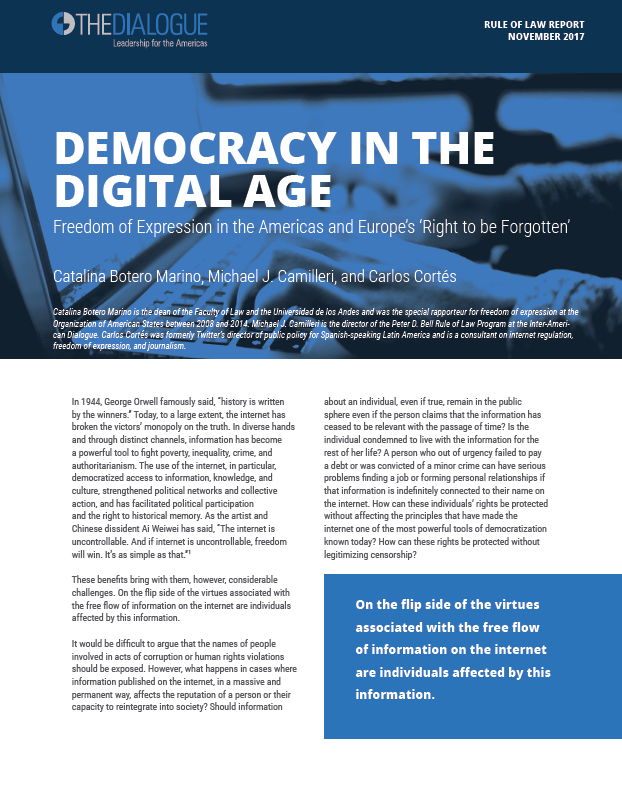
Violence & Impunity: Protecting Journalists in Colombia & Mexico
Violence against journalists is fortunately uncommon in many Latin American countries. But in some parts of the region it is of great concern.
This post is also available in: Español
This report from the Peter D. Bell Rule of Law Program assesses the merits and consequences of the “right to be forgotten online,” a legal doctrine developed in recent years by courts in the European Union to protect individual privacy. This emerging right allows individuals to request that search engines 'delist' information about them that they consider inadequate, irrelevant or excessive. The European Court of Justice is now considering expanding the doctrine beyond the confines of the EU, essentially applying the right to be forgotten online to all jurisdictions worldwide.
In the report, the authors ask critical questions about the appropriate balance and potential conflicts between the right to be forgotten and fundamental freedoms of expression and information. They pay special attention to the potential costs and impact of the “extraterritorial” application of the doctrine on historical memory, transparency, and accountability for corruption and human rights violations in the Americas.
This report is made possible in part thanks to support from Google.
Violence against journalists is fortunately uncommon in many Latin American countries. But in some parts of the region it is of great concern.
On November 4th, the Dialogue co-hosted an event with the Washington Office on Latin America (WOLA) to discuss the latest political developments in Cuba with guest Rafael Hernández, editor of the Cuban periodical Temas, on a variety of economic and political developments occurring in Cuba.
On November 15, the Inter-American Dialogue hosted the event “Corruption, Internet Freedom, and Online Privacy in Latin America,” bringing together panelists to discuss a report recently published by the Inter-American Dialogue about freedom of expression and the concept of the “Right to be Forgotten.” The event’s panelists included Catalina Botero, Edison Lanza, José Luis Piñar, Romina Mella, and Michael Camilleri. The panel explored the concept of the “Right to be Forgotten” in the context of Latin America, considering the tension between privacy and transparency, and how European privacy standards can be adapted for the Americas.


 Video
Video